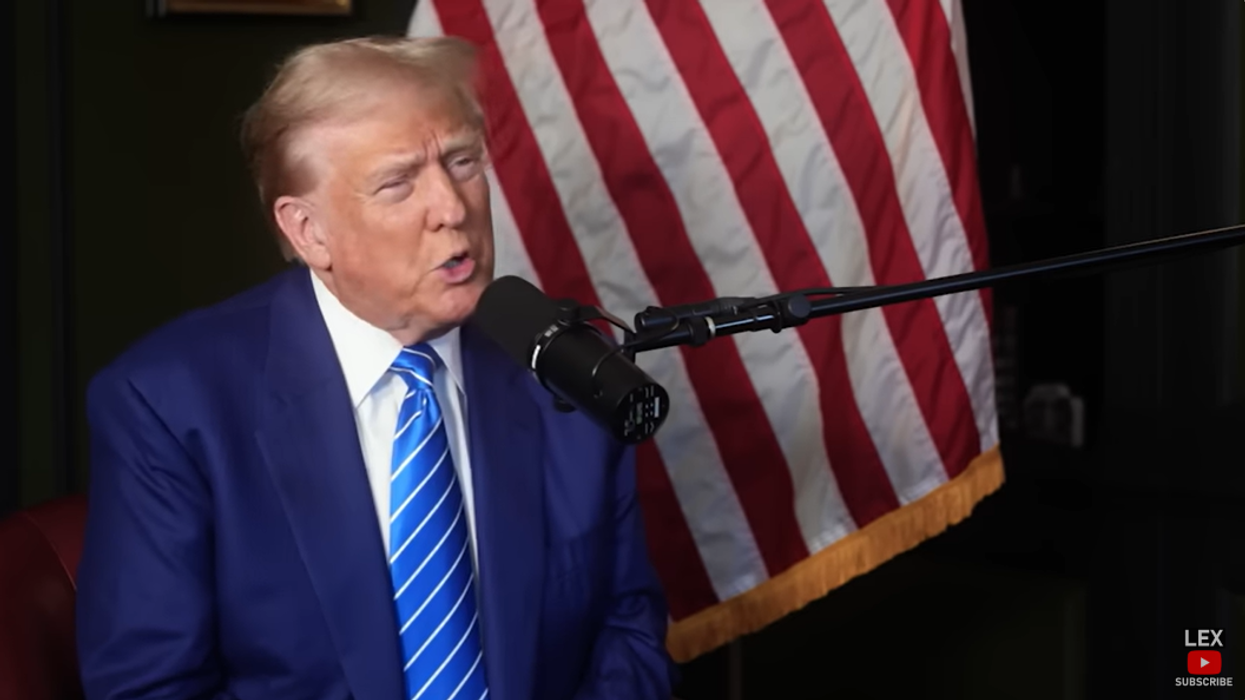Corbin is professor emeritus of marketing at the University of Northern Iowa.
Numerous audits and in-depth investigations led by Republicans have confirmed there is no evidence of voter fraud and machine rigging in the 2020 presidential election. Even former President Donald Trump has finally admitted he lost the election.
It is vitally important for voters to trust the 2024 election process. Post-election analysis, truth-telling by Trump and GOP-led investigations into the 2020 race should erase voters’ concern about the integrity of the upcoming election.
First, recall how Cassidy Hutchinson (assistant to Mark Meadows, Trump’s chief of staff) testified before the Jan. 6 select committee that Trump told Meadows and other White House staff that he lost the 2020 election. Hutchinson’s testimony has never been proven to be false.
Second, on Aug. 4, Trump — in an interview with podcaster Lex Fridman — admitted that he lost the 2020 presidential election. Trump also said he “lost the 2020 election” on two other occasions: Aug. 23, at an event near the southern border, and on Aug. 30, at the Moms for Liberty summit.
Third, the 2020 election deniers may purposely be ignoring that eight prominent, life-long Republicans, all attorneys, published a 72-page, research-based document in July 2021 in which they concluded that Joe Biden won the election fair and square. All voters should read, at a bare minimum, the introduction and executive summary of “ Lost, Not Stolen.”
Fourth, Ken Block, a data analytics expert and Trump campaign consultant, was hired by the Trump campaign to find voter fraud in the 2020 election. In a deposition taken by the Jan. 6 committee, he revealed the same results as noted in “Lost, Not Stolen” — that there were no voter irregularities anywhere in America.
Fifth, when white nationalist Nick Fuentes — Trump’s guest at a Nov. 22, 2022, Mar-a-Lago dinner — learned that Trump admitted he lost in 2020, he blasted Trump on his Sept. 6 podcast, requesting voters to not back Trump this year. An infuriated Fuentes stated, “So, why did we do Stop the Steal?” Trump’s Stop the Steal conspiracy theory has been touted 526 times on his Truth Social social media platform and will be a permanent stain on America’s revered voting process.
Lost, not Stolen
The eight Republican attorneys conducted a deep legal review of all 64 court cases filed by Trump and his supporters to contest the 2020 results. The final report, with 280 reference citations, provided unequivocal evidence that Trump lost. They found there was “ no credible evidence that fraud changed the outcome even in a single precinct, let alone in any state.”
The attorneys “also examined, point by point, every fraud accusation made in social media and in the public forum by those who claimed the election was stolen.” They found no improper vote counts, no voting machine rigging, no absentee ballot fraud, no voter identification fraud and no blocking of observers during the vote count.
The report’s authors include three prominent retired federal judges ( Thomas Griffith, Michael McConnell and J. Michael Luttig), former Solicitor General Theodore Olson, election lawyer Benjamin Ginsberg, longtime congressional senior aide David Hoppe and former Sens. John Danforth (Mo.) and Gordon Smith (Ore.).
They urged “fellow conservatives to cease obsessing over the results of the 2020 election.”
It’s interesting that 81 percent of adults surveyed in an ABC News/Ispos poll will accept the results of our upcoming Nov. 5 election. This means 19 percent of Americans — the ill-informed and gullible — have accepted Trump and GOP officials’ Stop the Steal pretense. Furthermore, 67 percent of Americans feel Trump isn’t prepared to accept the outcome unless he wins.
Patriotic Americans should feel sad for the 2020 election deniers, who have been hoodwinked, led down a dark rabbit hole, and given disinformation, misinformation and blatant propaganda. The 2020 Stop the Steal conspiracy theory movement has been proven — beyond a shadow of doubt — to be fallacious.
You should feel very comfortable voting on Nov. 5. Why? Close and contested elections are a part of American history, and all states have processes in place to handle just such situations. It is critical that citizens understand how these systems work so that they trust the results. Trusted elections are the foundation of our democracy.
On Nov. 5, don’t fret. Vote!




















Trump & Hegseth gave Mark Kelly a huge 2028 gift